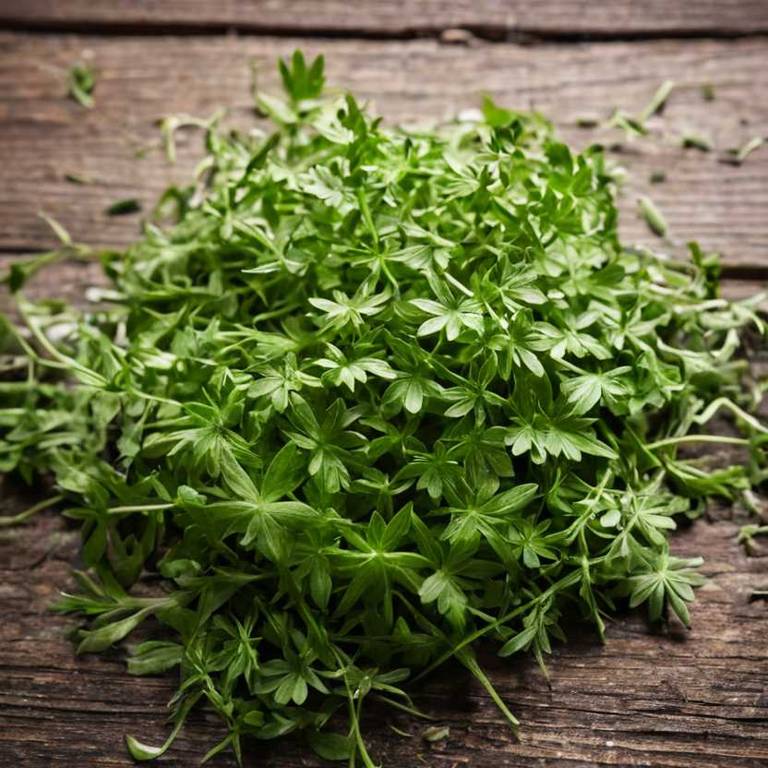Common Chickweed
Stellaria media
Ashwagandha is a prominent medicinal herb in Ayurvedic medicine, classified as a rasayana (rejuvenator). It is primarily utilized as an adaptogen to help the body manage physical and chemical stress.
Family
Solanaceae (Nightshade)
Native Region
India, Middle East, Africa
Part Used
Root, Leaf, Berry

Botanical Identification
Stellaria media, commonly known as Common Chickweed, is a member of the Caryophyllaceae family. It is an annual herb native to Europe, Asia, and North Africa. The plant has small white flowers, oval leaves, and a slender, branching stem. It is also referred to as Chickweed or Starwort in various regional names.
Active Compounds
Common Chickweed contains key bioactive compounds such as flavonoids, phenolic acids, and tannins, which contribute to its medicinal properties. These compounds work synergistically to reduce inflammation and support immune function. Their combined action enhances the herb's efficacy in traditional herbal medicine.
- Flavonoid
- Phenolic acid
- Tannin
Therapeutic Indications
| System | Condidtion | Action |
|---|---|---|
| Integumentary | Skin infections, wound healing, skin irritation, wounds | Antimicrobial, anti-inflammatory, antioxidant |
| Respiratory | Respiratory infections, cough, mucous membrane inflammation, respiratory tract infections | Antimicrobial, expectorant, anti-inflammatory, astringent |
| Immune | Inflammation, allergies, immune support, allergic reactions | Anti-inflammatory, antihistaminic, immunostimulant, antipyretic |
Preparation Methods
Decoction: Used for digestive issues and respiratory conditions.
Infusion: Used for mild digestive issues and as a general tonic.
Powder: Used for digestive health and as a general tonic.
Safety Profile
Common Chickweed is generally considered safe when used in moderate amounts. However, it should be avoided during pregnancy and breastfeeding due to potential risks. Individuals with allergies to plants in the Caryophyllaceae family should also exercise caution.